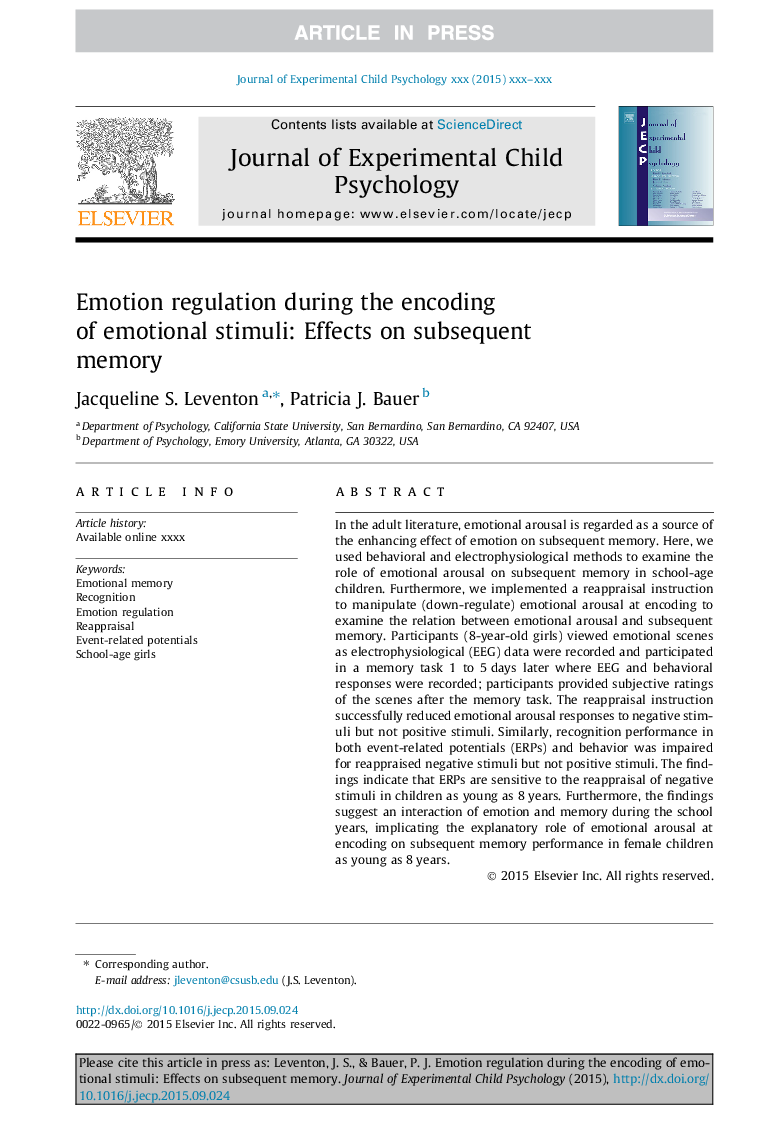| Article ID | Journal | Published Year | Pages | File Type |
|---|---|---|---|---|
| 7274927 | Journal of Experimental Child Psychology | 2016 | 22 Pages |
Abstract
In the adult literature, emotional arousal is regarded as a source of the enhancing effect of emotion on subsequent memory. Here, we used behavioral and electrophysiological methods to examine the role of emotional arousal on subsequent memory in school-age children. Furthermore, we implemented a reappraisal instruction to manipulate (down-regulate) emotional arousal at encoding to examine the relation between emotional arousal and subsequent memory. Participants (8-year-old girls) viewed emotional scenes as electrophysiological (EEG) data were recorded and participated in a memory task 1 to 5Â days later where EEG and behavioral responses were recorded; participants provided subjective ratings of the scenes after the memory task. The reappraisal instruction successfully reduced emotional arousal responses to negative stimuli but not positive stimuli. Similarly, recognition performance in both event-related potentials (ERPs) and behavior was impaired for reappraised negative stimuli but not positive stimuli. The findings indicate that ERPs are sensitive to the reappraisal of negative stimuli in children as young as 8Â years. Furthermore, the findings suggest an interaction of emotion and memory during the school years, implicating the explanatory role of emotional arousal at encoding on subsequent memory performance in female children as young as 8Â years.
Related Topics
Social Sciences and Humanities
Psychology
Developmental and Educational Psychology
Authors
Jacqueline S. Leventon, Patricia J. Bauer,
